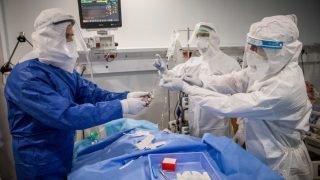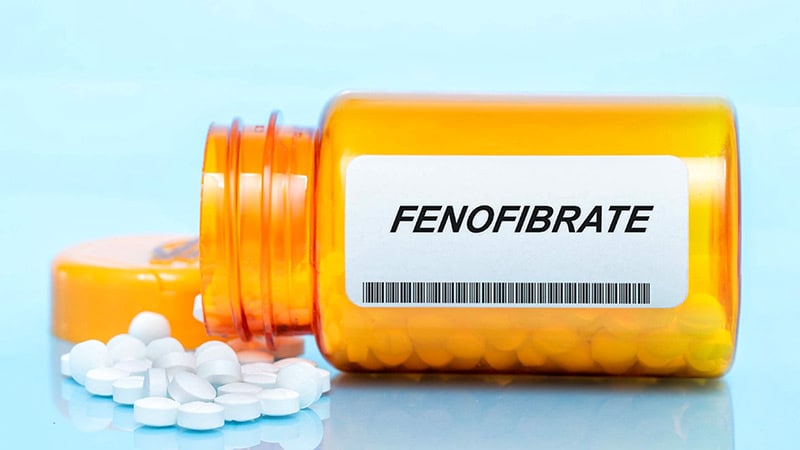— Prior findings from same cohort showed link between alcohol use disorder and bariatric surgery
by
Kristen Monaco, Senior Staff Writer, MedPage Today
July 21, 2023
One type of bariatric surgery was linked with a higher risk for substance use disorder (SUD), according to results from the prospective, controlled Swedish Obese Subjects study.
Over a median follow-up of 23.8 years, patients who underwent gastric bypass surgery had more than a 2.5-fold higher risk for developing non-alcohol SUD compared with non-surgical controls (adjusted HR 2.54, 95% CI 1.14-5.65, P=0.022), reported Per-Arne Svensson, PhD, of the University of Gothenburg in Sweden, and colleagues.
Notably, other bariatric procedures like vertical banded gastroplasty (aHR 1.41, 95% CI 0.78-2.56) and gastric banding (aHR 1.68, 95% CI 0.72-3.90) were not linked to a higher risk compared with no surgery, they noted in the journal Obesity.
Non-alcohol SUD incidence rates per 1,000 person-years were 1.6, 0.8, 1.1, and 0.6 for gastric bypass, vertical banded gastroplasty, gastric banding, and control patients, respectively.
Falling under the umbrella of SUD, the most common diagnoses were opioid-related disorders; sedative-, hypnotic-, or anxiolytic-related disorders; and other psychoactive substance-related disorders.
Svensson and colleagues pointed out that their numbers may be lower than reality since the SUD diagnoses were picked up in the Swedish National Patient Register, which doesn’t include SUD events from primary care, “meaning that less severe cases not requiring hospital stays and hospital-based outpatient care were not captured.”
However, “the total number of patients having non-alcohol substance use disorder was overall low,” reassured Svensson in a statement.
In an accompanying commentary, James Mitchell, MD, of the University of North Dakota in Fargo, and Devika Umashanker, MD, of Hartford Health Care in Connecticut, noted that this study “provides an important addition to the growing literature substantiating problems with both alcohol and non-alcohol substance use after bariatric surgery.”
Several prior studies have identified a link between bariatric surgery and new-onset alcohol use disorder, including in this same cohort from the Swedish Obese Subjects. The link was acknowledged by the American Society for Metabolic and Bariatric Surgery (ASMBS) in their 2016 position statement.
“These significant findings further reinforce the recommendations of the ASMBS and highlight the critical role of bariatric behavioral health clinicians in the comprehensive evaluation and care of patients both before and after weight-loss surgery,” commented Jihad Kudsi, MD, MBA, of Duly Health and Care in Illinois, in a statement.
“It is noteworthy that a history of past substance abuse or dependence, which has fully remitted, should not be considered a contraindication for weight-loss surgery,” added Kudsi, who was not involved with the study.
The researchers explained that alcohol use disorder after gastric bypass makes sense pharmacokinetically, since gastric bypass alters the way alcohol is absorbed through the body. On the other hand, there is less information available about the altered pharmacokinetics of orally administered substances like morphine after bariatric surgery, they noted.
Beyond altered pharmacokinetics, the idea of an “addiction transfer” is also plausible, with gastric bypass patients substituting substances in place of food in brain reward processing, Svensson and team said.
Mitchell and Umashanker noted that “both biological and psychosocial issues must be considered as possibly contributory.”
Based on these and prior findings, bariatric surgery candidates should be fully warned of the risks for alcohol and substance abuse disorders, they advised.
“It should also be remembered that there is a biological test, measurement of phosphatidylethanol, that can be very useful in identifying and roughly quantifying recent intake of alcohol,” they added. “Therefore, all healthcare professionals, not just bariatric surgery clinics, who encounter these patients should be aware of these problems and carefully monitor for them.”
For this study, a total of 2,010 patients with obesity who underwent bariatric surgery were included in the analysis: 265 who underwent gastric bypass, 1,369 who underwent vertical banded gastroplasty, and 376 who underwent gastric banding. They were compared with 2,037 matched controls receiving usual obesity care. Of note, patients who had psychiatric or drug and alcohol problems prior to surgery were excluded from the study.
Across groups, mean age was 47 to 49, and most patients were women. Models were adjusted for baseline age, sex, body mass index (BMI), current smoking, alcohol consumption, education level, psychiatric care or psychiatric drug use, and inclusion year.
The commentary authors pointed out that the study was missing data on patients who had gastric sleeve surgery, which is now the most common type of bariatric surgery performed in the U.S.
![author['full_name']](https://clf1.medpagetoday.com/media/images/author/kristenMonaco_188.jpg)
Kristen Monaco is a senior staff writer, focusing on endocrinology, psychiatry, and nephrology news. Based out of the New York City office, she’s worked at the company since 2015.
Disclosures
The study was supported by the Adlerbert Research Foundation, the Health & Medical Care Committee of the Region Västra Götaland, the ALF-agreement, and the Swedish Research Council.
Svensson and co-authors reported no disclosures.
Mitchell and Umashanker reported no disclosures.
Primary Source
Obesity
Source Reference: Svensson P-A, et al “Non-alcohol substance use disorder after bariatric surgery in the prospective, controlled Swedish Obese Subjects study” Obesity 2023; DOI: 10.1002/oby.23800.
Secondary Source
Obesity
Source Reference: Mitchell JE, Umashanker D “New important data concerning problems with substance abuse disorder after bariatric surgery” Obesity 2023; DOI: 10.1002/oby.23850.
Note: This article have been indexed to our site. We do not claim legitimacy, ownership or copyright of any of the content above. To see the article at original source Click Here













